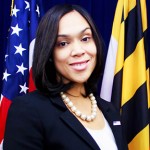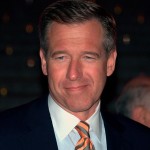I didn’t see the show, yesterday – it can be viewed here but my brother Thom did and wrote this about it in an email:
Jon Meacham was reflecting on how two of the great figures of the last part of the 20th century were actors — Reagan and John Paul. And he said “I think politicians and preachers are both charged with a particularly difficult responsibility — to convince people of a reality that they cannot see.”
That just struck me as very insightful and wise and true. Doris Goodwin said JP ranks as one of the three great charismatic leaders of the last century — the other two being Churchill and Roosevelt. And all gathered around the table remarked that it was his unwavering conviction in his beliefs, and his utter and complete consistency of thought and ideology, that lifted him above most other leaders of his day.
Interesting. I’ll have to watch the show later, when I have time. I cannot help but notice, though that the qualities which these pundits say raised JPII above the others, his “his unwavering conviction in his beliefs, and his utter and complete consistency of thought and ideology” are precisely the qualities they despise in President Bush.
UPDATE: Here’s a partial transcript:
MR. RUSSERT: We’re going to talk a whole lot more about Iraq and foreign policy, but I wanted to go to another story. The Associated Press said the second-biggest news event of the year was the papal transition, the death of John Paul II, the elevation of Pope Benedict. This was the scene in Rome in April, and the crowd took over the event, chanting for “John Paul the great,” and suggesting rather feverishly that he be made a saint. Peggy Noonan, in her book “John Paul the
Great: Remembering a Spiritual Father,” said something very interesting. She said the coverage of the funeral was “the greatest
evangelical event since Gutenberg printed the Bible.” What do you think, Doris?
MS. GOODWIN: Well, I think there’s no question that people realized that in the presence of John Paul II, there was a great man who was able to mystically connect to people of all sorts all around the world. I mean, think of the numbers of places he went, the numbers of people that he probably did bring into the Catholic religion because of the force of his personality. We haven’t seen those large personalities in a long time. We had it in Churchill, we had it in Roosevelt, we had it
negatively in Hitler and Stalin. But this man, in our generation, was probably the largest personality on the world scene, and he did have an effect on people feeling, because of him, that they wanted to dig into themselves even more and think about religion.
MR. RUSSERT: Bill Safire, so many non-Catholics approached me during this week saying, “This is fascinating to me, to watch this kind of coverage,” in a very positive way. What is that all about? MR. SAFIRE: Well, with John Paul, there was a political dimension. He was the man, more than anybody, behind Solidarity, and there was this enormous shift that went on in Eastern Europe when he was selected; all of a sudden, a pope from inside the Iron Curtain. And so those of us
who were not Catholic were rooting for him, and sure enough, he came through.
MR. RUSSERT: Jon Meacham.
MR. MEACHAM: It was both his personality, but it was also what he was saying. John Paul II preached, whether one agrees or disagrees, or believes or disbelieves, what he called the gospel of life, that we should be pro-life in terms of abortion, but we should also be for economic justice, that we should be anti-Communist and pro-individual rights, that we should be anti-capital punishment. He had an intellectual consistency to him that you do not often see in politics or the public stage, and he bore witness to that. To use George Weigel’s wonderful phrase, he was a witness to hope. And again, you can
argue with him, disagree with him and we don’t have to do what he said, but he was a force, a voice for life and for hope in a world that seems increasingly dark, and I think in that sense he was a truly, truly, historical figure, great historical figure, I should say. And I think it’s fascinating to me personally that two of the great figures of the late 20th century were actors, Ronald Reagan and John Paul II, because like great actors, great pastors and great politicians convince people of a reality they cannot see and lead them to it. And I think both President Reagan and John Paul II did that.
MS. GOODWIN: And FDR always wished he’d been an actor.
MR. MEACHAM: That’s right.











